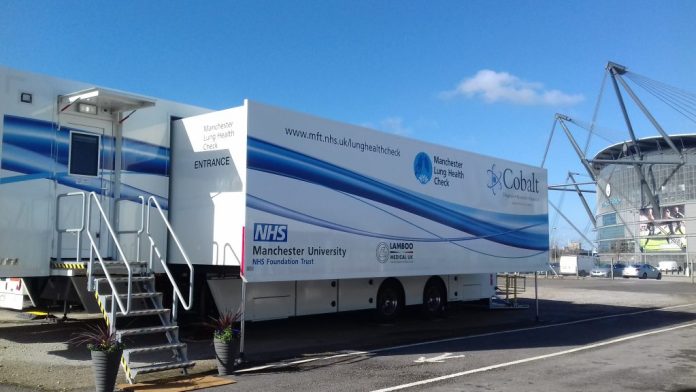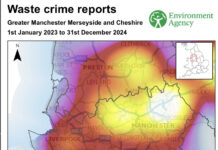People in deprived areas are now more likely to be diagnosed with lung cancer at an earlier stage, thanks to the success of NHS lung trucks.
For the first time ever, new data shows more than a third of people diagnosed with lung cancer from the most deprived fifth of England were diagnosed at stage one or two in 2022 (34.5%) – up from 30% in 2019.
Lung MOTs, located in mobile trucks in supermarket carparks, launched in 2018 in areas of the country with the lowest lung cancer survival rates – and they have already made an impact on earlier diagnoses.
As part of the biggest programme to improve earlier cancer detection in health history, the NHS has now teamed up with the Roy Castle Lung Foundation on a new campaign encouraging the hundreds of thousands of people who are invited each month to take up the potentially lifesaving scan.
The campaign will be running over the coming months across social media, through online advertising and on posters in areas where lung checks are operating.
More than 300,000 (313,387) people have already taken up the offer and the trucks have diagnosed more than 1,750 (1,779) people with lung cancer. Over three-quarters (76%) were caught at stage one or two, compared with just a third caught at early stages in 2018.
People diagnosed with lung cancer at the earliest stage are nearly 20 times more likely to survive for five years than those whose cancer is caught late.
Now at 43 sites across the country, the mobile trucks scan those most at risk from lung cancer, including current and ex-smokers, inviting them for an on-the-spot chest scan for those at the highest risk. Advice to help people stop smoking is also provided to those who attend.
Cancer survival is at an all-time high in England and the latest data shows the NHS is diagnosing more patients with cancer at an earlier stage than ever before, when it is easier to treat – over 100,000 (104,012) patients were diagnosed with cancer at stages one or two when it is easier to treat – the highest proportion on record.
National Director for Cancer, Dame Cally Palmer, said: “These findings are incredibly important – they show the power behind targeted health programmes with the NHS continuing its drive to detect cancers earlier by going into the heart of communities that may be less likely to come forward.
“While early diagnosis rates for cancer have traditionally been lower for deprived groups, thanks to the rollout of lung trucks, the NHS has turned a huge corner – and is now finding and treating those who would otherwise have been undetected.
“The NHS will not stop in its efforts to go out and find more cancers at an earlier point, when easier to treat, so if you have had an invite, please take it up, and as ever, if you are showing any signs of cancer, please come forward to your GP – getting checked could save your life”.







